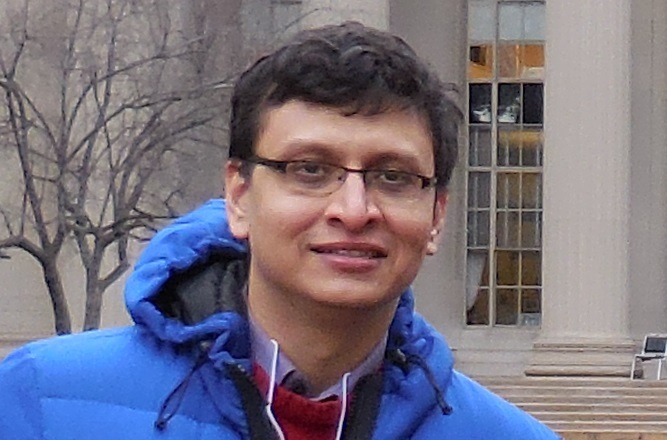Week 1: Introduction, Poles and Zeros, Ideal Opamp, Applications of OPAMP – Inverting and Non Inverting Amplifier
Week 2: Applications of OPAMP (..Contd) – Summer Amplifier, Difference Amplifier, Integrator, Differentiator
Week 3: Non Idealities in an OPAMP – Finite Gain, Bandwidth, Slew Rate, Saturation, Offset Voltage, Bias Current
Week 4: Bode Plots, Frequency Response, Millers Theorem, Feedback, Effect of Feedback
Week 5: Stability, Nyquist Plot, Phase Margin, Gain margin, Frequency Compensation
Week 6: Filter Design, Butterworth and Chebyshev Filters Non Linear Applications of Filters – Limiters, Oscillators, Multivibrators
Week 7: Diodes, Basic BJT Circuits
Week 8: Basic BJT based circuits
TEACHING ASSISTANT
Vishakha Pandey

Vishakha Pandey is pursuing her PhD from Electrical Engineering Department, IIT-Bombay. She has
completed her M-Tech degree in 2019 from CSRE Department, IIT-Bombay specializing in
Geoinformatics and Natural Resources. She has been awarded teaching assistantship for numerous
courses like Introduction to Machine Learning, Introduction to Electrical and Electronic circuits,
Satellite Image Processing, Remote Sensing and GIS application to cryosphere and Scattering models
in Microwave Remote Sensing. She has one journal publication, has attended one international
conference and two national conferences. She has successfully completed and been awarded for
numerous projects like “Glacier Mass balance studies in Sikkim Himalayan Region from 2000-2014”,
“Indigenous Development of Through the Earth (TTE) Two Way Voice Communication System for
Underground Mines” and “Green Energy prospect for MMMUT”. She is in process of Patenting one of
her Ideas. She is always Enthusiastic to teach and loves to interact with her students to solve their
doubts.
Vivek Tamrakar

Vivek Tamrakar did B.E. in Electrical & Electronics from Shri Shanakaracharya College of Engg
& Tech in 2012. After getting a good rank in GATE 2013, started pursuing M.Tech from NIT
Bhopal and graduated in 2015. He has teaching experience of two years (Feb`16—Dec`17) during
which he taught topics related to basic electronics and circuits. He joined IIT B as a Ph.D Scholar
in Electrical Dept. in Jan`18. He has already been a TA for Analog Circuits in 2020.

DOWNLOAD APP
FOLLOW US